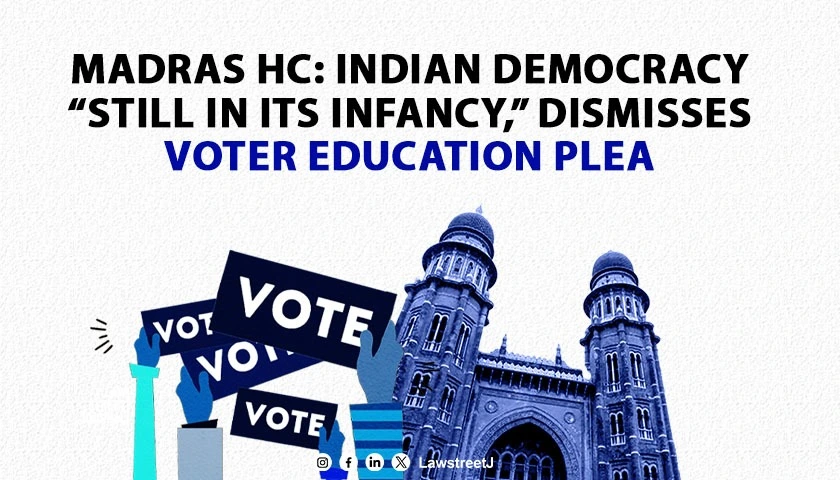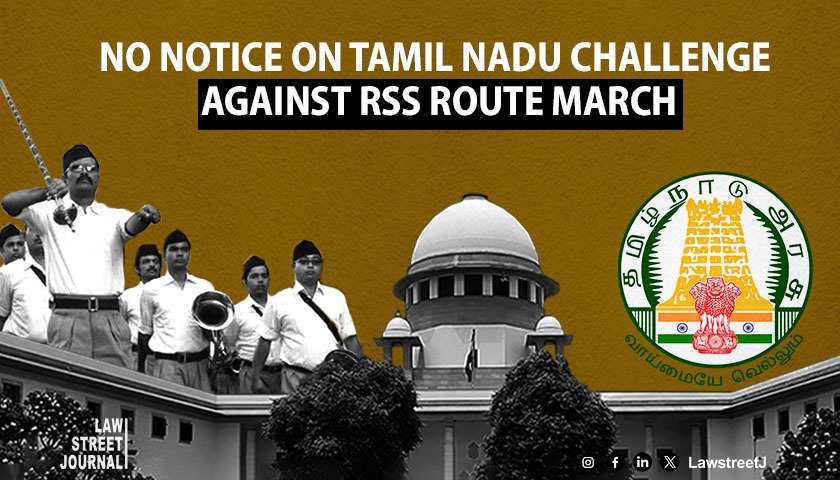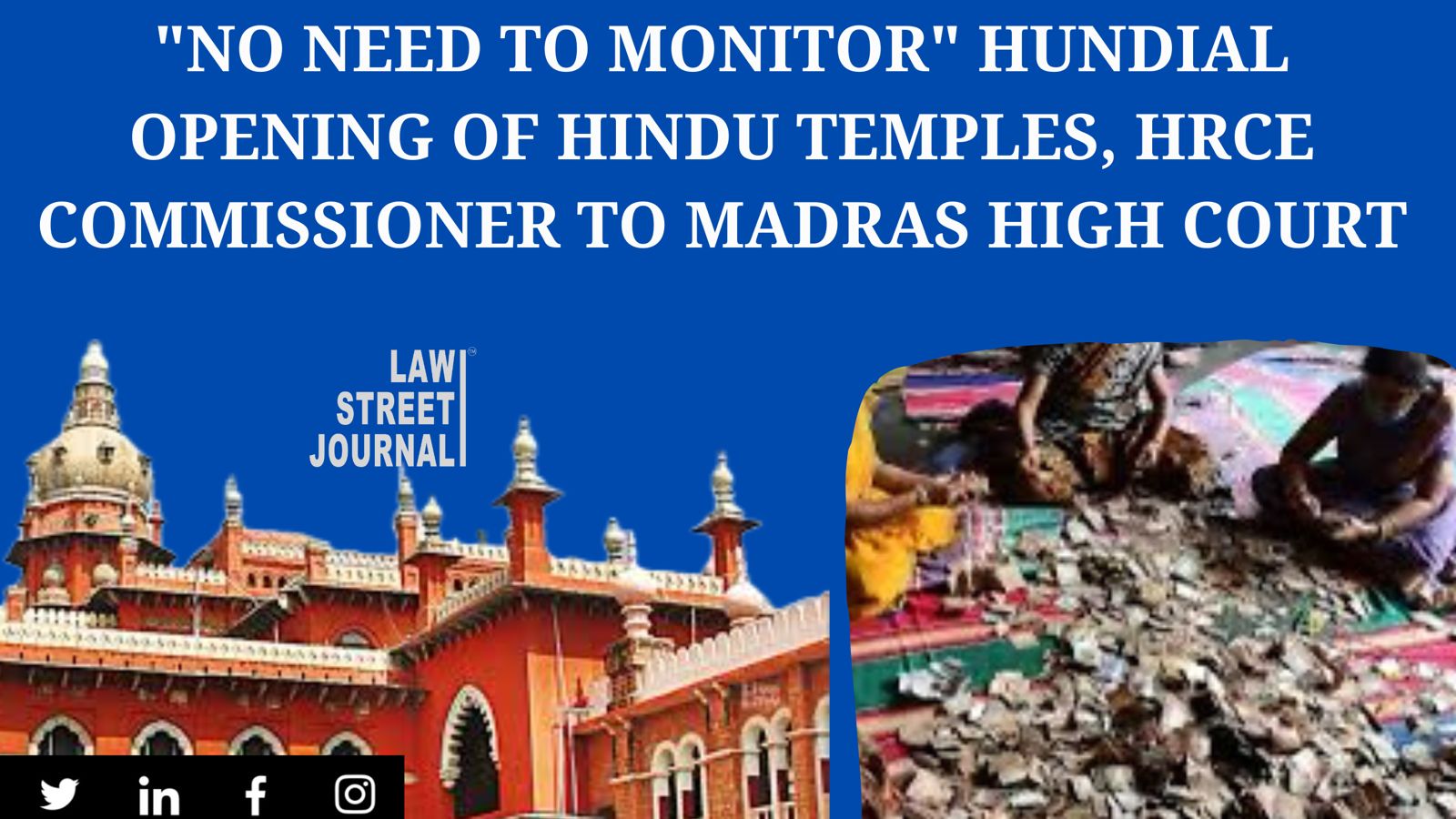Chennai: The Madras High Court has dismissed a petition seeking directions to the Election Commission of India (ECI) to establish a comprehensive system for educating voters about corrupt electoral practices. While noting that Indian democracy is 75 years old, the court remarked that it is “still in its infancy.”
Madras High Court Ruling on Voter Education: Key Takeaways
A Division Bench comprising Justice R. Subramanian and Justice G. Arul Murugan heard the writ petition filed by Rajesh Anouar Mahimaidoss, who appeared as a party-in-person during the proceedings.
The petitioner sought directions to the ECI to disseminate information about the Preamble of the Constitution, the 2017 Supreme Court judgment in Abhiram Singh vs. C.D. Commachen, and the corrupt practice under Section 123(3) of the Representation of the People Act, 1951, which prohibits seeking votes on the grounds of religion, caste, or language.
Indian Democracy and Electoral Reforms: Court’s Latest Observations
After examining the counter-affidavit filed by the Election Commission, the court observed:
“A reading of it shows that the Election Commission has been doing its best to achieve optimum turnout in the elections and also to ensure that election campaigns are not based on religion and caste.”
Commenting on the state of Indian democracy, the court further stated:
“In a vast country like ours, change cannot happen overnight. Democracy, though 75 years old, is still in its infancy. Therefore, we can only hope that things change at least over time and that both citizens and politicians refrain from using caste or religion as the basis for contesting elections or voting preferences.”
The petitioner had specifically requested the court to direct the ECI to utilize its ambassadors and officers to disseminate information through social media, mainstream media, and public spaces, including theaters and entertainment venues. He had also sought directions for uploading this information on the ECI and state election commission websites, political parties’ websites, and at polling stations.
Additionally, the petition sought the appointment of an independent commission comprising retired judges and human rights activists to oversee the enforcement of the 2017 Supreme Court judgment.
However, the court concluded that such a mandamus could not be issued in light of the counter-affidavit filed by the Election Commission and dismissed the writ petition without costs.
Mr. Niranjan Rajagopalan, Advocate, appeared for the Election Commission of India.
Case Title: Rajesh Anouar Mahimaidoss vs. The Election Commission of India




![Madras High Court Directs Tamil Nadu Government to Ensure Quota for Transgenders in Local Body Elections [Read Order]](/secure/uploads/2023/08/lj_2507_7a03d113-08b1-4670-b6fb-9058aee481d0.jpg)








